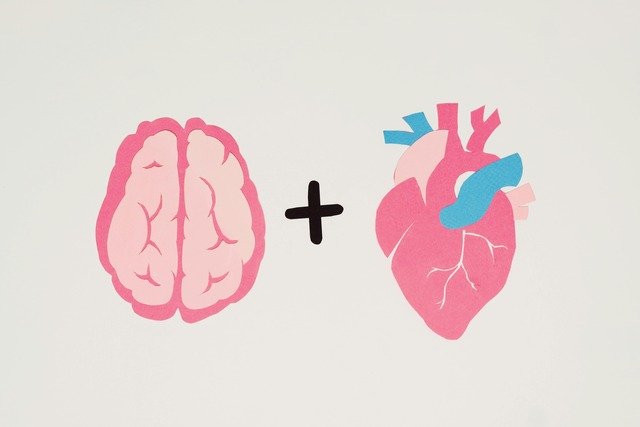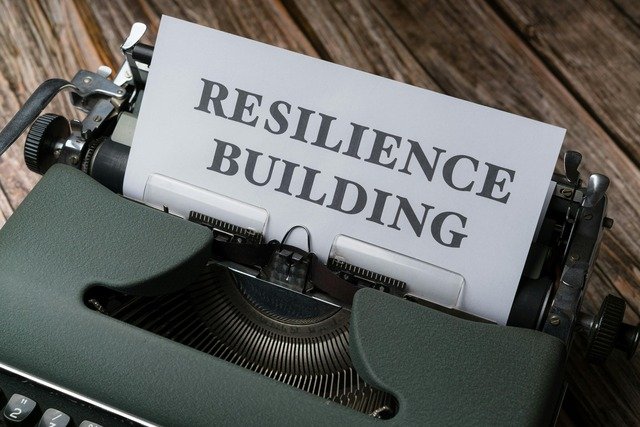It was slightly after midnight in a packed emergency department. Alina, an ICU nurse with more than ten years of experience, had just completed a 12-hour shift when a surge of critical patients from a highway crash flooded the ward. Amidst the panic that affected many nearby, Alina stayed concentrated. She managed intakes, supported families, and kept her team focused. Once the chaos settled, a junior nurse inquired, “How do you manage to remain so composed when everything is going wrong?” Alina’s answer was straightforward: “It’s not only about experience — it’s understanding how to control my feelings.”
Alina's experience is not one of a kind. High-stress occupations – from healthcare and law enforcement to finance and executive roles – require not only technical skills but also emotional strength. Emotional resilience is the capacity to cope with stress, bounce back from difficulties, and sustain mental health. A growing body of research indicates that emotional intelligence (EI) — our ability to recognize, comprehend, regulate, and utilize emotions effectively — is an essential resource for fostering this type of resilience (Mayer, Salovey, & Caruso, 2004).
Here, we explore how emotional intelligence empowers professionals in demanding roles to build and maintain emotional resilience. Through detailed analysis, real-world examples, and actionable strategies, we will uncover how EI can be a game-changer in high-pressure workplaces.

The Character of High-Pressure Employment
High-pressure positions are defined by strict deadlines, significant risks, and ongoing decision-making in stressful conditions. Think about healthcare workers in emergency situations, corporate leaders dealing with financial troubles, law enforcement agents addressing unexpected dangers, or air traffic controllers overseeing numerous flights. Every position demands steady performance, irrespective of outside pressures.
Research conducted by Shanafelt et al. (2015) indicated that more than 50% of doctors in the U.S. faced considerable burnout. In the same way, leaders frequently cite persistent stress from the necessity of making quick, significant decisions with inadequate information (Goleman, Boyatzis, & McKee, 2013). The overall impact of this stress, if not addressed, results in fatigue, reduced effectiveness, and increased turnover.
Impact of Stress and Burnout
Sustained exposure to occupational stress without adequate coping mechanisms can lead to burnout—a state of physical, emotional, and mental exhaustion (Maslach & Leiter, 2016). Burnout reduces productivity, impairs judgment, and affects organizational outcomes. In high-stakes professions like law enforcement or emergency response, poor emotional regulation can even endanger lives.
Link Between Resilience and Job Performance
Emotional resilience directly affects how people handle their workload, face setbacks, and navigate interpersonal difficulties. Resilient employees not only bounce back from challenges faster but also show increased creativity, productivity, and collaboration (Robertson, Cooper, Sarkar, & Curran, 2015). Emotional intelligence, which we will examine, serves as a basis for building and maintaining this resilience.

What is Emotional Intelligence and Why It Matters?
Daniel Goleman (1995) popularized emotional intelligence with five core components:
- Self-Awareness – Recognizing one's emotions and their effects.
- Self-Regulation – Managing emotions in healthy ways.
- Motivation – Harnessing emotions to pursue goals.
- Empathy – Understanding others’ emotional states.
- Social Skills – Managing relationships to move people in desired directions.
These components equip individuals to handle interpersonal challenges, make thoughtful decisions, and remain effective under pressure.
Emotional Intelligence in High-Stress Careers
In demanding jobs, emotional intelligence isn't an option—it's essential. Self-awareness enables a surgeon to detect increasing anxiety during a challenging procedure and adjust concentration. Self-control allows a police officer to calm a heated scenario. Empathy enables a leader to recognize team burnout and take proactive measures.
EI’s Impact on Mental and Emotional Well-being
Emotional intelligence serves as a safeguard against mental anguish. Research indicates that people with elevated emotional intelligence demonstrate reduced anxiety, depression, and stress levels (Schutte, Malouff, Thorsteinsson, Bhullar, & Rooke, 2007). This emotional steadiness establishes the foundation for enduring resilience.

Developing Emotional Resilience Through EI
To develop emotional intelligence, individuals must first practice mindfulness—being aware of their emotional responses in various situations, and then learn how to control impulsive reactions. Active listening and empathy are crucial for connecting with others and building meaningful relationships, both personally and professionally. Furthermore, emotional intelligence can be enhanced through feedback, reflective practices, and open communication. By investing in emotional intelligence, individuals can improve decision-making, enhance conflict resolution, and foster positive, collaborative environments. This practice leads to healthier relationships and greater resilience, enabling one to navigate challenges with composure and empathy.
Self-Recognition
Recognizing one’s emotional habits is the initial step towards resilience. Self-aware individuals can recognize when they feel stressed, angry, or overwhelmed and actively manage those emotions. Methods such as mindfulness meditation and journaling assist professionals in becoming more aware of their internal experiences (Brown & Ryan, 2003).
A financial analyst engages in daily reflection to monitor emotional responses amid market fluctuations, enhancing future reactions.
Self-Control
Self-control inhibits hasty responses during challenging circumstances. Methods consist of deep breathing, cognitive restructuring, and taking a moment before replying. Leaders who exhibit strong self-control tend to make more logical choices and foster confidence.
In a product crisis, a technology leader took a moment to collect information rather than respond defensively, promoting openness and unity within the team.
Compassion and Interpersonal Skills
Empathy improves communication and diminishes conflict, particularly in high-pressure situations. Managers who show empathy tend to keep employees longer and foster trust (Clark, Robertson, & Young, 2019). Relationship management guarantees that teams remain united, even in stressful situations.
A captain in the fire department employed compassionate listening to assist a troubled firefighter in coping with trauma, sustaining both morale and effectiveness.
Cultivating Uplifting Feelings and Drive
Positive feelings expand our perception and develop enduring coping resources (Fredrickson, 2001). Motivation, an additional component of emotional intelligence, helps individuals maintain their focus on goals despite challenges. Visualization, setting goals, and practicing gratitude improve these abilities.
An ER nurse practices gratitude journaling to sustain positivity after challenging shifts, enabling her to come back each day with refreshed energy.

Practical Strategies for Building Emotional Resilience
Practical strategies for building emotional intelligence are essential because they enable individuals to manage emotions effectively, leading to better decision-making and healthier relationships. By developing strategies like mindfulness, active listening, and self-regulation, individuals can navigate challenges with composure and empathy. In both personal and professional settings, emotional intelligence strengthens leadership abilities, enhances conflict resolution, and boosts overall emotional well-being, making practical strategies a cornerstone for long-term personal and professional success.
Awareness and Stress Control
Interventions based on mindfulness have demonstrated considerable effectiveness in lowering stress levels and improving resilience (Good et al., 2016). Breathing techniques, guided mindfulness sessions, and body awareness practices can assist professionals in maintaining focus in tumultuous settings.
Suggestion: Engaging in a 10-minute mindfulness exercise each morning can decrease cortisol levels and enhance emotional control.
Consistent EI Training
Training initiatives aimed at boosting EI skills strengthen workplace resilience and enhance team dynamics. These initiatives frequently encompass role-playing, scenario evaluation, and feedback activities.
A legal practice implemented emotional intelligence training and experienced a 25% decrease in employee turnover along with a notable rise in client satisfaction (Grant, 2017).
Creating a Support Network
Emotional resilience is significantly influenced by social support. Peer networks, mentoring initiatives, and compassionate leadership enable individuals to feel appreciated and equipped to tackle challenges.
A police department launched peer-support groups, greatly lowering the occurrence of post-traumatic stress among its officers.
Contemplation and Growth through Difficulties
Resilient people see failures as chances to learn. Organized debriefings and reflective journaling assist professionals in reinterpreting challenges and adjusting more efficiently.
Following an unsuccessful product introduction, a marketing group conducted a “failure review” to learn from their mistakes and come back more resilient.

Real-Life Examples of Resilience in High-Pressure Jobs
Healthcare Professionals Amid the COVID-19 Crisis
Amid the height of the pandemic, medical professionals endured constant stress. Emotional intelligence became crucial for handling grief, fear, and workload. Hospitals that adopted emotional resilience training noted reduced burnout levels and improved patient care results (Shanafelt et al., 2020).
Business Leaders Navigating During a Crisis
When the 2008 financial crisis occurred, numerous leaders were thrown into a state of panic. However, Howard Schultz, who was the CEO of Starbucks at the time, guided with compassion and openness, addressing employee issues and upholding company principles. His emotionally aware leadership enabled Starbucks to bounce back quicker than numerous rivals (Goleman et al., 2013).
Emergency Responders and Emotional Intelligence
Law enforcement and fire department personnel regularly face situations that could be life-threatening. Programs designed to educate these professionals in emotional intelligence—including identifying emotional overload and applying grounding techniques—have decreased on-duty occurrences and enhanced community relations (Arble & Arnetz, 2017).

Challenges to Building Emotional Resilience
Building emotional resilience can be challenging due to factors like deep-rooted stress or past traumatic experiences that can make it difficult to manage emotions effectively. Negative thought patterns and self-doubt can hinder progress, preventing individuals from adapting to adversity. Additionally, external pressures like work stress or personal conflicts can overwhelm one's coping mechanisms, making it hard to bounce back. It also takes time and continuous effort to develop healthy emotional responses and build lasting resilience, which may feel overwhelming when immediate results are not visible. Nonetheless, perseverance and consistent practice can help overcome these obstacles.
Insufficient Awareness or Education
Even with evident advantages, numerous sectors ignore EI training. Emotional intelligence remains regarded as a "soft skill" in various corporate environments, often seen as less important than technical knowledge.
Workplace Environment
A harmful or excessively competitive work environment can diminish resilience. In these settings, showing empathy is viewed as a flaw, and demonstrating vulnerability is not encouraged.
Opposition to Change
Certain professionals oppose EI development, perceiving emotions as personal or insignificant to their jobs. Transforming this mindset necessitates robust leadership and cultural changes that emphasize well-being.

Assessing and Tracking Emotional Resilience
Assessing and tracking emotional resilience is crucial for identifying strengths and areas of improvement in coping strategies. It allows individuals to measure their progress, adjust their responses to stress, and develop better emotional management techniques. Regular assessment helps maintain mental well-being and ensures sustainable growth in handling life's challenges.
Essential Indicators of Emotional Resilience
Evaluation instruments like the Emotional Quotient Inventory (EQ-i 2.0) and self-evaluation questionnaires assist in assessing resilience. Indicators encompass stress resilience, impulse management, and social connections.
Employing EI Metrics in Performance Evaluations
Organizations are starting to include EI-related skills in performance assessments. This not only recognizes the significance of EI but also encourages its growth.
Input and Ongoing Enhancement
Consistent 360-degree feedback encourages the development of emotional intelligence and resilience. Leaders who promote emotional growth foster stronger teams and greater trust within the organization.
Organizations that incorporate emotional intelligence training and emphasize well-being are more inclined to keep top talent, sustain productivity, and encourage psychological safety. The future of strong leadership depends on understanding that emotional intelligence is just as important as technical ability.


